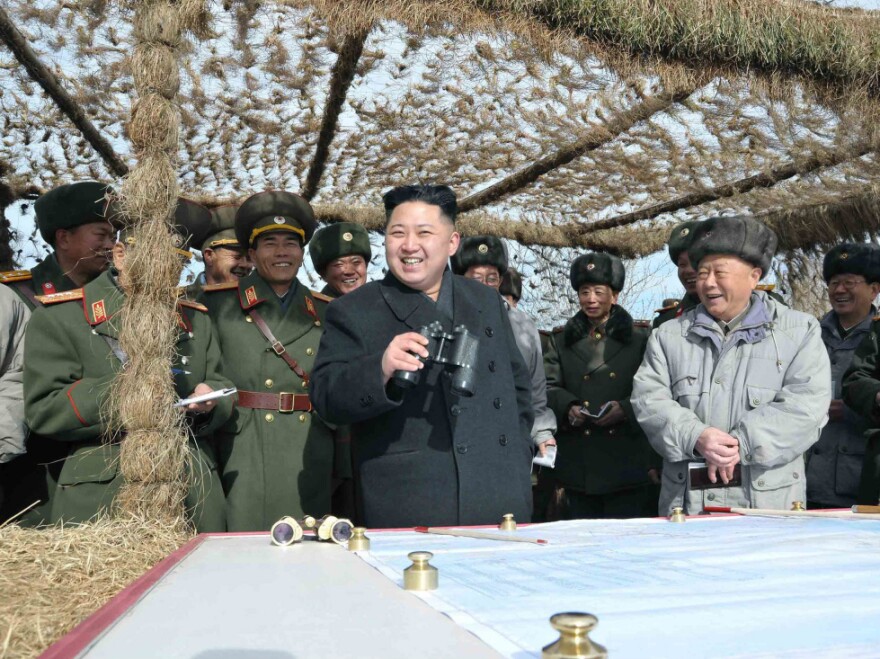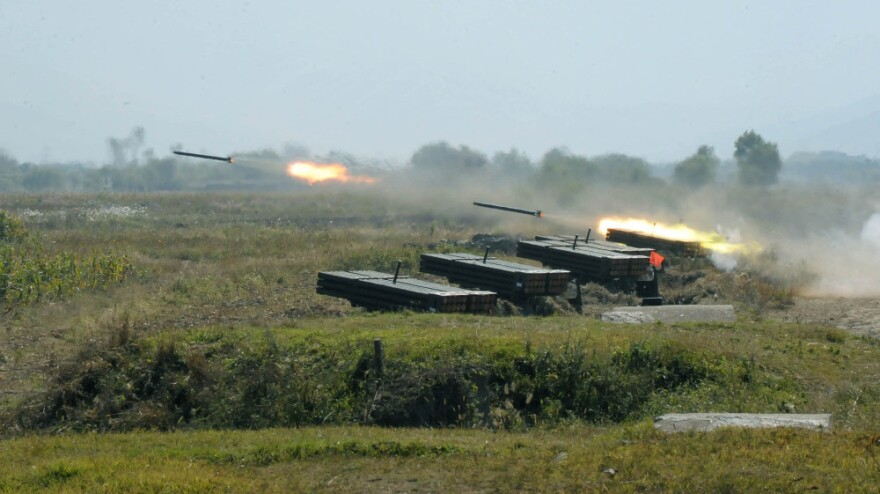North Korea has agreed to suspend uranium enrichment and missile tests, and the U.S. says it will provide food aid. The agreement should set the stage for a new round of nuclear disarmament talks. But analysts caution this is a small first step.
U.S. State Department officials returned from three days of talks in Beijing with a deal meant to improve the atmosphere for a resumption of so-called six-party nuclear disarmament talks. Secretary of State Hillary Clinton outlined the deal in Congress on Wednesday.
"North Korea has agreed to implement a moratorium on long-range missile launches, nuclear tests and nuclear activities at Yongbyon, including uranium enrichment activities," Clinton told a House committee.
She says North Korea has also agreed to allow in inspectors. The U.N.'s nuclear watchdog says it is ready to resume its inspections.
For its part, the U.S. is promising to finalize a food aid package, which had been put on hold last year when North Korea's longtime leader, Kim Jong Il, died and his son, Kim Jong Un, came to power.
"On the occasion of Kim Jong Il's death, I said that it is our hope that the new leadership will choose to guide their nation onto the path of peace by living up to its obligations," Clinton said. "Today's announcement represents a modest first step in the right direction."
Skepticism In Congress
But not everyone was impressed.
"We must recall the regime's constant duplicity," said Florida Republican Ileana Ros-Lehtinen, who chairs the House Foreign Relations Committee. "We have bought this bridge several times before."

She told Clinton that she is worried about the signal the U.S. is sending by announcing the food deal and the nuclear agreement at the same time.
"The North Koreans will view this food as payment due to their return to the bargaining table regardless of the transparency and monitoring we hope to secure in the future," Ros-Lehtinen said.
North Koreans had hoped for food aid in the form of rice and grains, but U.S. officials feared that could just end up on banquet tables of the country's elite. Instead, the U.S. will be sending what it calls nutritional assistance — vegetable oils, beans, and high-energy bars and similar products.
One former U.S. negotiator, Victor Cha, also said he was concerned about the apparent quid pro quo. But he said the deal makes sense because the world is so concerned about North Korea's uranium enrichment.
"It's not ... a major breakthrough, but I think it is important because we have not had eyes on this nuclear program for five years," Cha said. "This allows us [to get a] foot in the door."
Cha, who now teaches at Georgetown University, said he is not expecting any quick resumption of six-party talks, though. He said there is still too much tension between North and South Korea.
"The North Koreans have been spewing ... rhetoric about how they are going to bomb the country," said Cha, who is currently in South Korea. "In the past we'd say, 'That's rhetoric, they've done it before.'"
"But it's an entirely different context now — new leadership — and we have no idea what this guy thinks," he said of Kim Jong Un.
Cha, author of a forthcoming book about North Korea called The Impossible State, said there are a couple of reasons for the deal announced Wednesday: North Korea wants to demonstrate that its leadership is stable, and the U.S. wants to avoid another crisis there in a U.S. election year.
Copyright 2020 NPR. To see more, visit https://www.npr.org. 9(MDAxNDQ2NDAxMDEyNzU2NzM2ODA3ZGI1ZA001))







